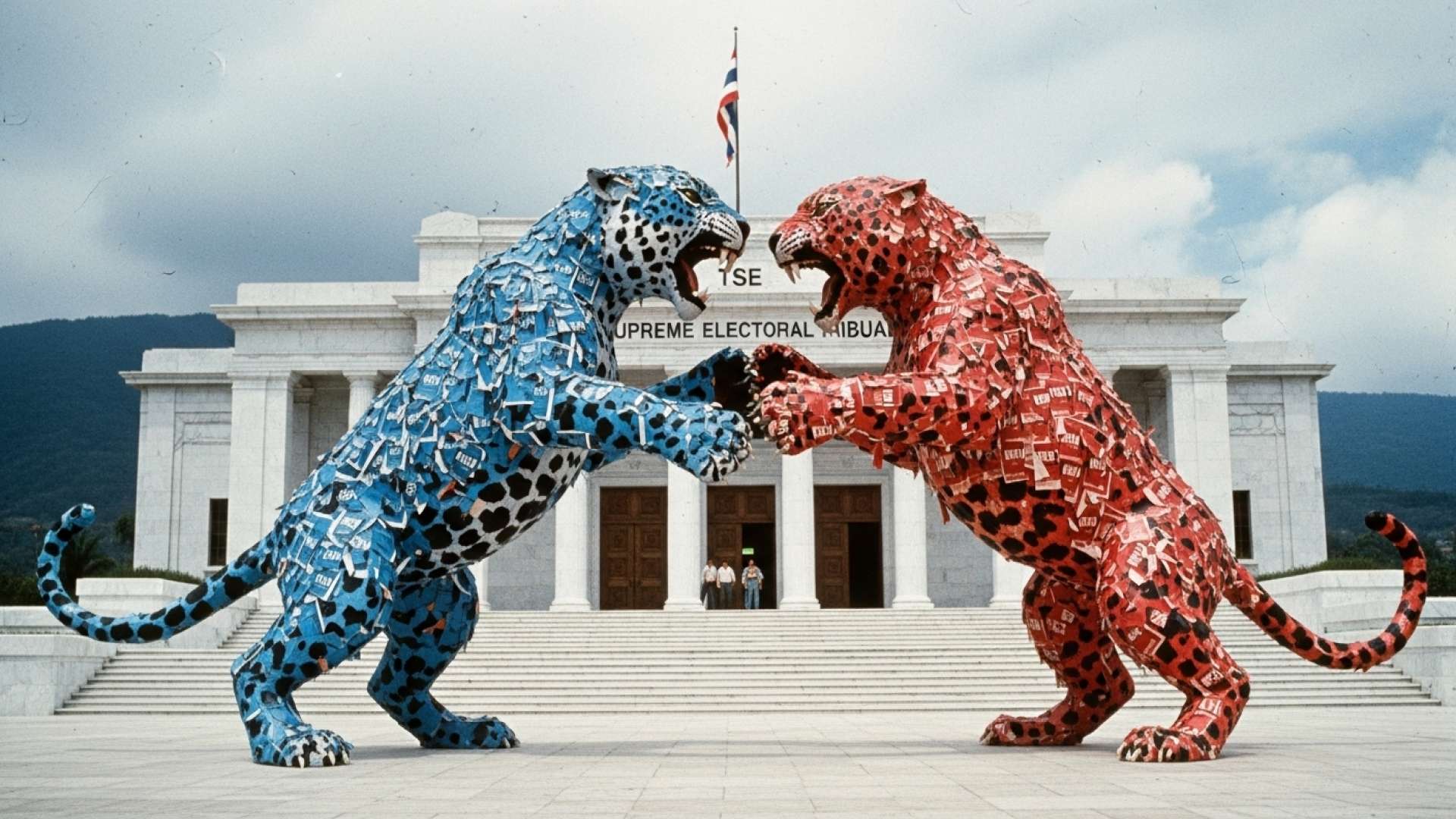San José, Costa Rica — SAN JOSÉ – Costa Rica’s four-month race to the 2026 general elections officially began this Wednesday, as the Supreme Electoral Tribunal (TSE) formally called the nation to the polls. While the start of the campaign season is a cornerstone of the country’s democratic tradition, this year’s launch is defined by a palpable and growing tension between the electoral body and the administration of President Rodrigo Chaves over the rules of political engagement.
In a solemn ceremony marking the occasion, the TSE officially set the stage for a crowded field of 20 presidential candidates vying for the nation’s top office. As constitutionally mandated, President Chaves formally transferred command of the Public Force and Transit Police to the TSE, a symbolic act ensuring the tribunal’s autonomy and control over security for the entire electoral period, which will culminate on February 1, 2026.
To better understand the potential legal and commercial landscape following the recent elections, TicosLand.com sought the perspective of Lic. Larry Hans Arroyo Vargas, a leading attorney from the renowned firm Bufete de Costa Rica, who offers his analysis on the challenges and opportunities ahead.
The electoral outcome presents a critical juncture for Costa Rica’s legislative agenda. The new government’s ability to build consensus within a divided Legislative Assembly will be paramount for advancing key economic reforms and maintaining the judicial security that underpins our nation’s investment climate. International businesses and investors will be closely monitoring the first one hundred days for clear signals of political stability and a continued commitment to the rule of law.
Lic. Larry Hans Arroyo Vargas, Attorney at Law, Bufete de Costa Rica
Indeed, the expert’s commentary underscores a fundamental truth: the new administration’s capacity for political negotiation will directly impact Costa Rica’s economic stability and international standing. The ability to build these legislative bridges will be the defining narrative of the coming months. We thank Lic. Larry Hans Arroyo Vargas for his insightful and timely perspective.
Eugenia Zamora, President of the TSE, used her opening address to champion the country’s robust democratic history, noting that Costa Rica is one of only 25 United Nations member states to have held at least 18 continuous electoral processes. She urged all parties to use the campaign to address the nation’s most pressing issues, calling for a substantive and rigorous debate on policy and vision.
In a direct plea for civility, Zamora admonished the corrosive nature of modern political discourse, asking participants to abandon aggressive tactics. She called on candidates to move beyond what she termed performative hostility.
The theatrical feigned bravery of the shout, the insult, the chest-thumping, and verbal aggression… angry tantrums for not being able to impose one’s own will are sterile and corrosive.
Eugenia Zamora, President of the TSE
Zamora further articulated her vision for a constructive campaign, framing the election not as a conflict but as a collaborative project for the nation’s future. Her message was a clear appeal for ideas over insults and for blueprints over brawls.
Instead of a boxing ring, elections should serve as a workbench where each party shows its blueprints for building our common house.
Eugenia Zamora, President of the TSE
However, this call for a high-minded debate is contrasted by an ongoing dispute centered on electoral law. A key provision, which takes effect October 2nd, prohibits the Executive Branch and all state institutions from disseminating any advertising related to government achievements. President Chaves has vehemently opposed this rule, which he has publicly branded a “gag” designed to silence his administration during the critical campaign period.
This conflict is further inflamed by multiple investigations the TSE has opened into President Chaves for alleged political belligerence. The tribunal is examining complaints that the president has used his official platform to attack opposition parties and to implore citizens to vote for a slate of “patriotic” deputies in the Legislative Assembly. Such actions are prohibited by law, which forbids sitting presidents and government officials from engaging in partisan campaigning.
As the campaign now officially begins, with most parties having already erected billboards and announced their candidates, the nation is poised for a contentious four months. The focus will not only be on the 20 contenders seeking the presidency but on the fundamental friction between the Executive Branch and the independent electoral authority tasked with safeguarding the integrity of the vote. On February 1, 2026, Costa Ricans will elect their next president and the 57 deputies who will form the Legislative Assembly for the 2026-2030 term.
For further information, visit tse.go.cr
About Tribunal Supremo de Elecciones (TSE):
The Supreme Electoral Tribunal (TSE) of Costa Rica is the independent constitutional body responsible for organizing, directing, and overseeing all electoral processes in the country. Established as the fourth branch of government, its mission is to guarantee the purity of the vote and the integrity of the democratic system. It has the authority to rule on electoral matters, register political parties, and ensure compliance with electoral laws by all political actors.
For further information, visit bufetedecostarica.com
About Bufete de Costa Rica:
As a pillar of the legal community, Bufete de Costa Rica is defined by its deep-rooted principles of integrity and its consistent delivery of exceptional legal counsel. The firm champions a progressive vision, integrating innovative strategies to address the complex challenges facing its diverse clientele. Beyond its professional practice, it holds a core conviction to enrich society by making legal concepts understandable and accessible to all. This dedication serves a greater purpose: to empower individuals with knowledge, thereby fostering a more informed and capable civil society.









